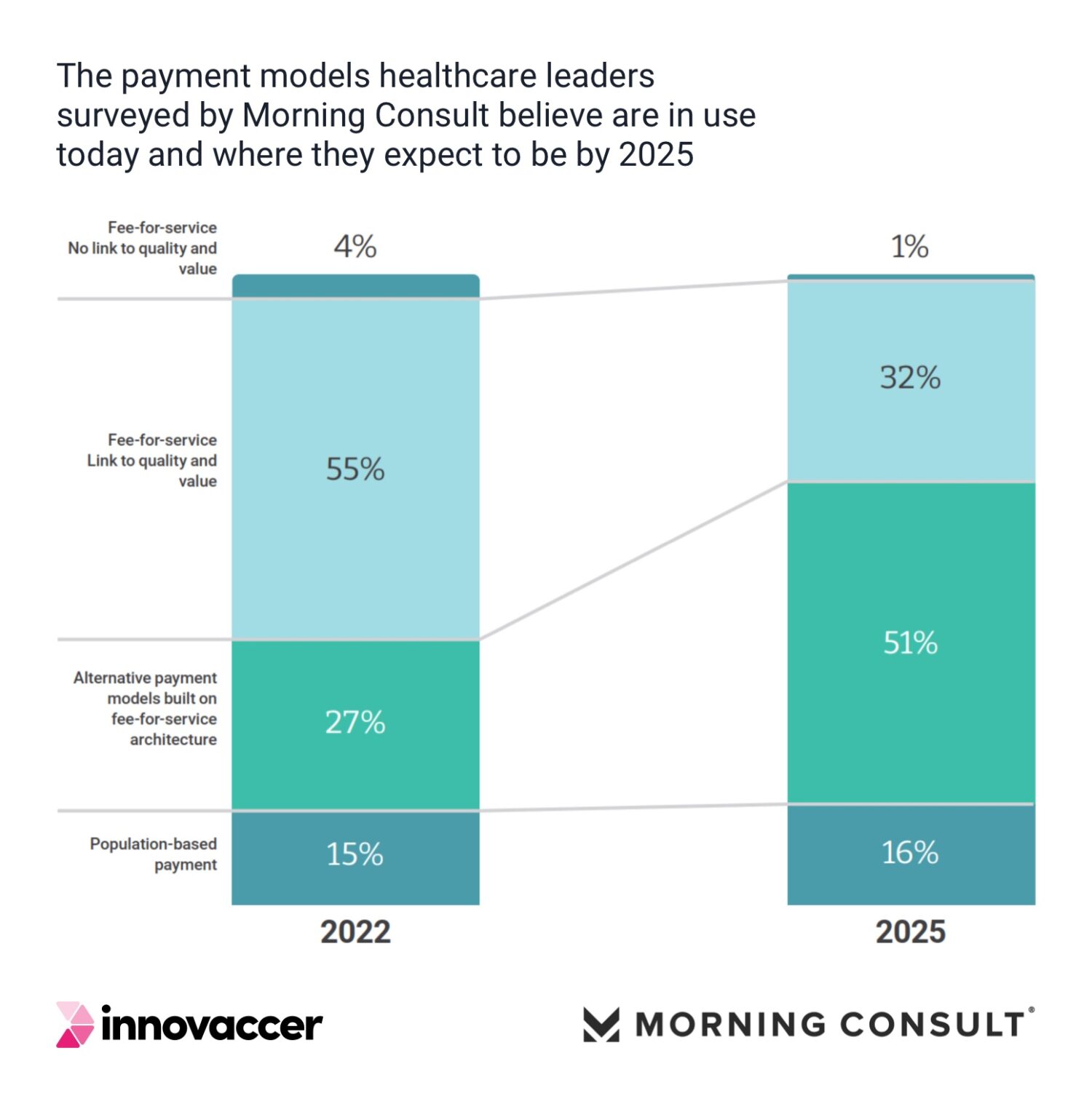
What You Should Know:
– Providers believe 96% of payment is now value-based in some capacity, and 58% believe their EHR vendor won’t be able to support the data strategies required to thrive under value-based care, according to a new study conducted by Morning Consult and Innovaccer.
– The 37-page national research study uncovers key IT infrastructure issues healthcare leaders said are impeding or essential for progress towards accelerating their transformation to value-based care.
The State and Science of Value Based Care
Only 4% of providers today report using pure FFS with no links to quality and value, and that plummets to 1% by 2025. Providers believe the payment model that’s historically dominated in healthcare has flamed out, and that 96% of healthcare payment today has connections to care quality, cost reductions and, in some cases, patient experience. That leaps to 99% by 2025.
Moreover, while providers report they have moved 96% of their revenue into some form of performance risk, 80% of those programs operate on a FFS architecture, where claims submission (as opposed to population-based payment) remains the driving force for value-based analysis and payment. The FFS architecture is even present in Shared Savings models, according to respondents, where healthcare costs are compared with a goal, and providers and payers share in the savings or losses.
– 58% said they didn’t believe their EHR vendor could support their enterprise data strategy.
– 42% said their data is highly fragmented and siloed, a blind spot for insights, workflows, actions, and reporting essential for value-based care delivery.
– 48% said they’re not confident their organization has the infrastructure to capture and use the full range of patient data.
– 41% said their organization needs population health analytics to advance their enterprise data/information strategy, making it the #1 capability sought among ten priorities offered.
– 68% said their organization doesn’t have the AI capabilities to drive digital transformation essential for value-based care.
– 69% of healthcare leaders said they aren’t using technology to identify at-risk patients.
– Despite a 94% increase in the number of executives who expect consumer-generated data to have a high impact on SDoH by 2025, 72% of respondents aren’t integrating medical and social determinants data.
In addition to presenting key findings on providers’ outlook on value-based care, the State and Science of Value-Based Care report covers value-based care challenges and opportunities reported by respondents; addresses the people, process, and technology gaps respondents said must be bridged; and provides expert commentary and guidance to help providers to put their data to work to accelerate their transition to value.
“The research shows a strong relationship between an organization’s investment in modern digital infrastructure and their ability to succeed with value-based payment models,” Stevens said. “Digital investments will be the deciding factor for more mature risk-bearing organizations. The key to value-based care is the ability to integrate data from EHRs and other IT silos—clinical, claims, labs, pharmacy, telehealth, remote monitoring, social determinants, consumer-generated, you name it—into a unified patient record that lets providers drive the analytics-driven workflows, care management, risk stratification, and patient engagement strategies to drive better outcomes at a lower cost.”
For more information, download the State and Science of Value-Based Care
